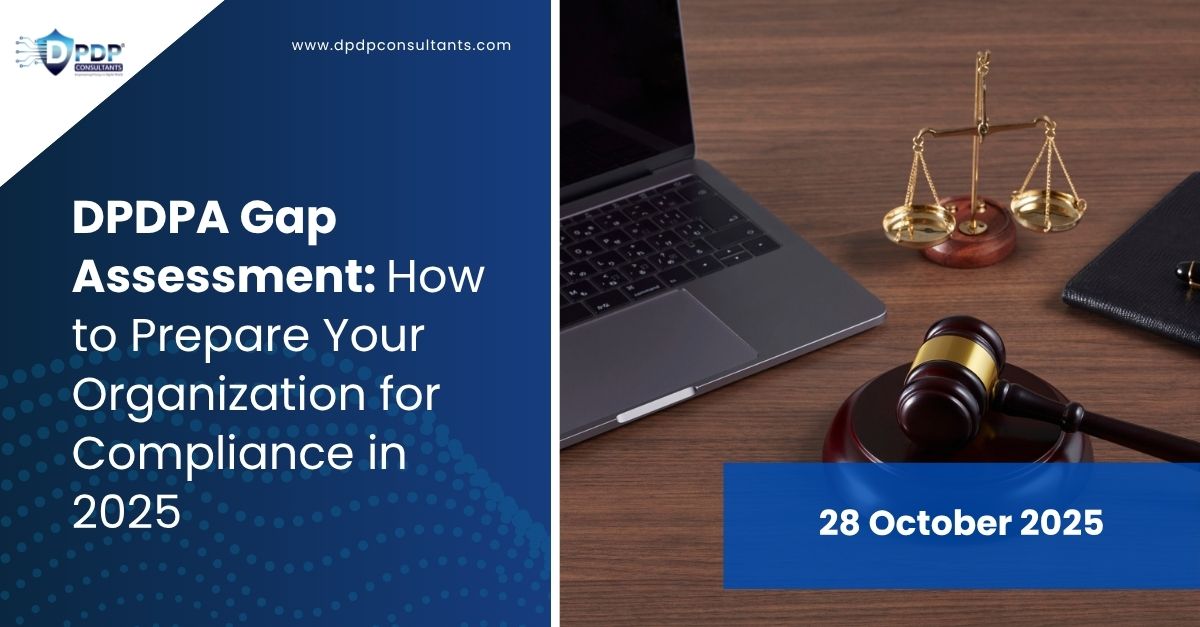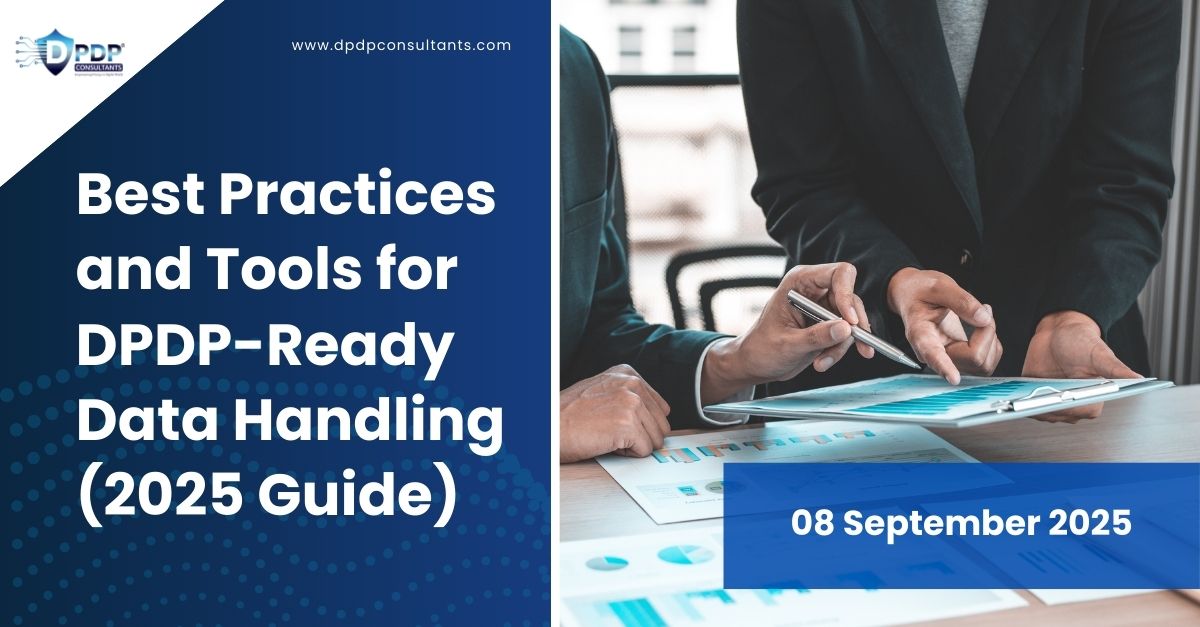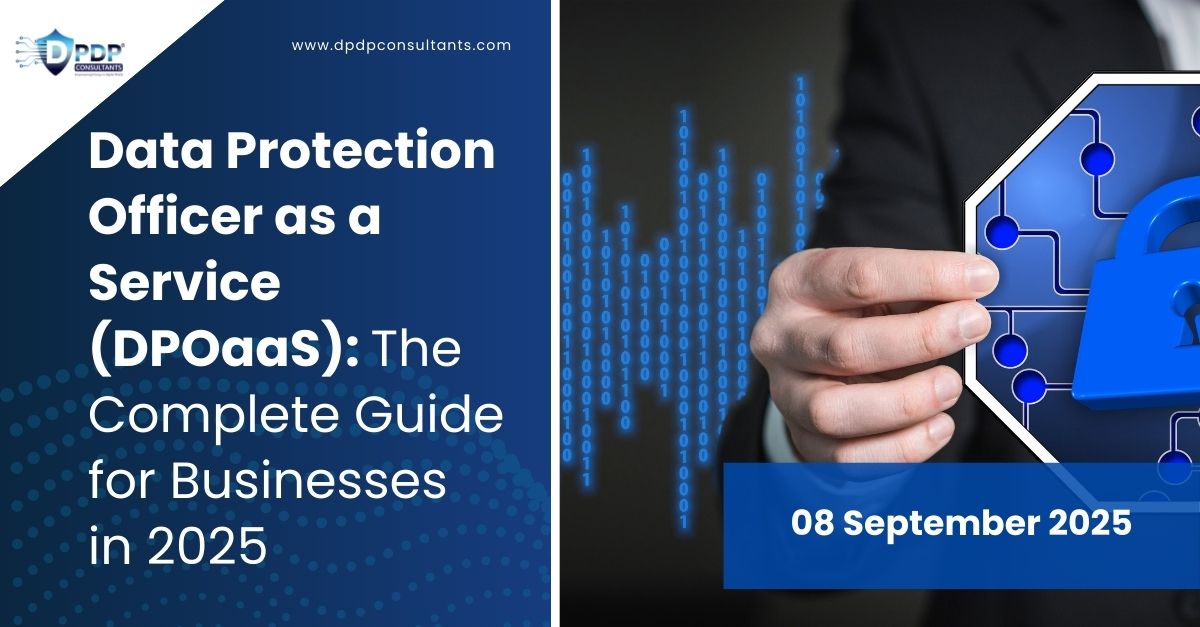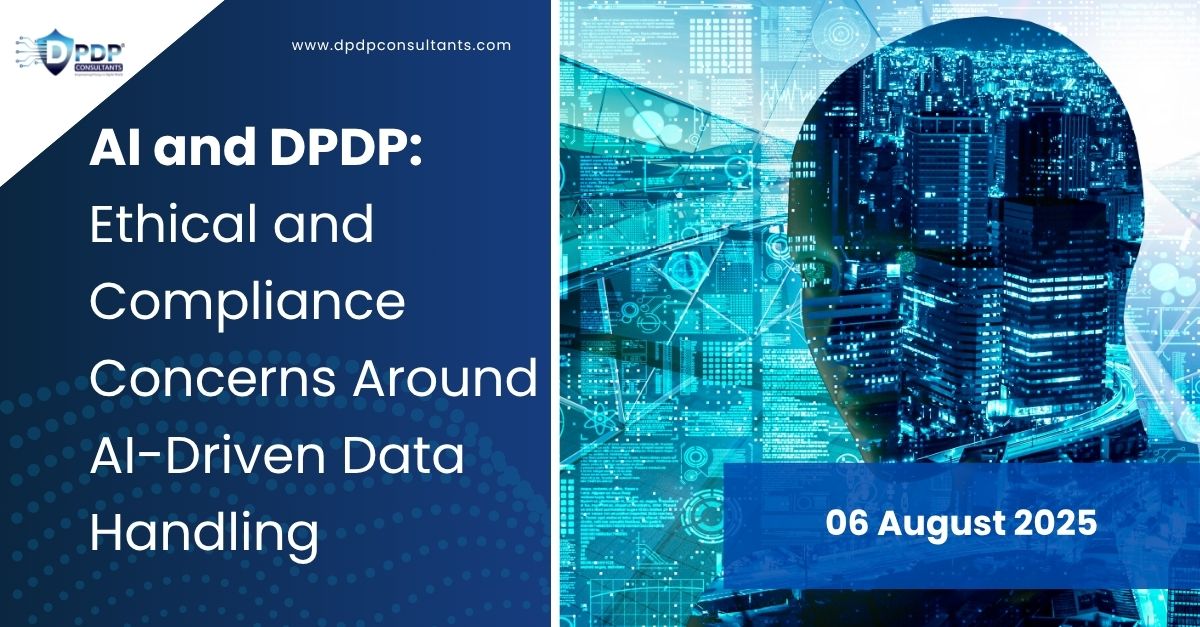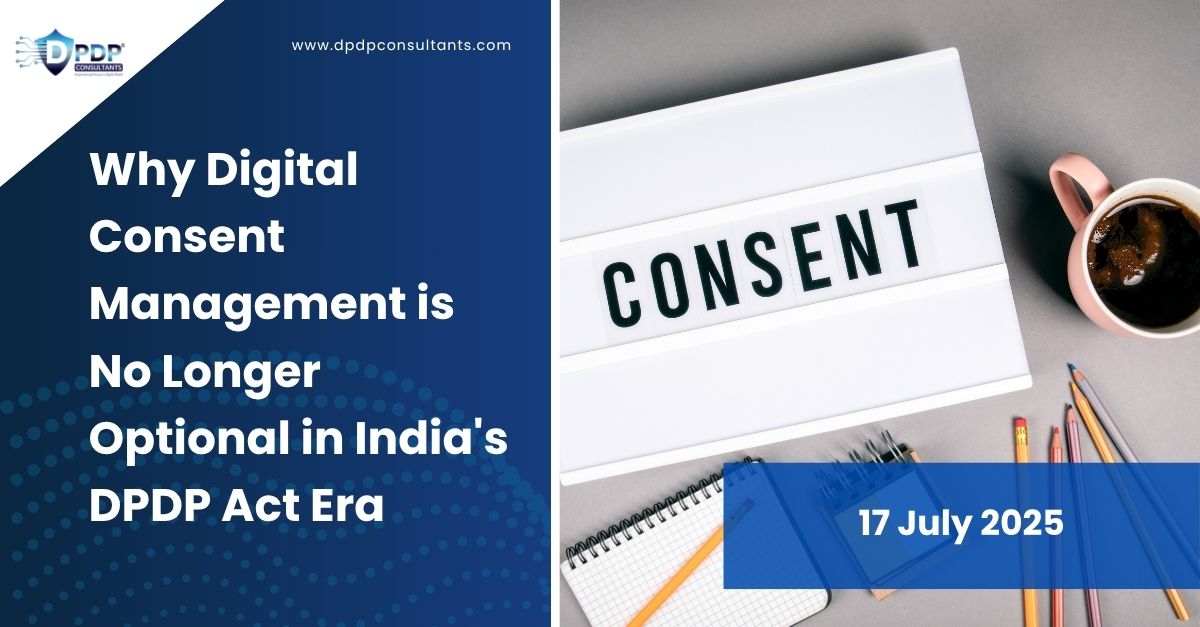I. Introduction
India’s Digital Personal Data Protection
Act (DPDPA), 2023 has ushered in a new era of accountability in how
organizations collect, store, and manage personal data. For businesses
operating in India’s digital economy, whether in BFSI, e-commerce, technology,
healthcare, or manufacturing compliance with the DPDPA is no longer a
regulatory formality. It’s a strategic necessity.
To achieve compliance, every organization
must first understand where it currently stands. That’s where a DPDPA Gap
Assessment comes in.
A structured, expert-led assessment helps you identify compliance gaps, measure
risk exposure, and design a practical roadmap to achieve full readiness efficiently
and confidently.
At DPDP Consultants, we help organizations
across industries navigate this transition seamlessly through our DPDPA Gap
Assessment Review, ensuring readiness for upcoming regulatory enforcement in
2025.
II. What the DPDPA Means for Your Business
The DPDP Act, 2023 establishes a unified
framework governing how organizations collect, process, and protect personal
data. It applies to every entity handling digital personal data whether online
or offline data later digitized.
Under the DPDPA, businesses are required
to:
- Obtain valid, informed, and purpose-specific consent before
processing personal data.
- Provide clear, standalone privacy notices outlining what data
is collected and why.
- Enable individuals (Data Principals) to access, correct, and
erase their personal data.
- Maintain real-time audit trails as proof of compliance.
- Report data breaches promptly and maintain robust security
controls.
For Indian organizations, compliance isn’t
just about avoiding penalties (which can reach up to ₹250 crore per breach).
It’s about building trust, transparency, and credibility, the foundations of
sustainable digital growth.
III. What Is a DPDPA Gap Assessment & Why You Need One
A DPDPA Gap Assessment is a systematic
evaluation of your organization’s data protection framework compared against
the Act’s legal and operational requirements.
Define it as a compliance blueprinting
exercise that helps businesses:
- Identify gaps in policies, processes, and technologies.
- Evaluate risks across data lifecycle stages from collection to
deletion.
- Prioritize actions using a risk-based methodology.
- Develop a practical roadmap for full DPDPA alignment.
Unlike generic data audits or GDPR
checklists, a DPDPA Gap Assessment focuses on India-specific mandates such as
purpose-linked processing, multilingual notices, lawful consent mechanisms, and
local data residency expectations.
IV. Our 5-Step DPDPA Gap Assessment Framework
You should build a clear, step-by-step
framework that helps organizations achieve compliance systematically with
minimal disruption to business operations.
Step 1: Grounds of Processing Assessment
Section 4 of the DPDPA mandates lawful,
consent-based data processing.
Our team reviews your data collection and processing practices to ensure they
align with:
- Lawful basis for processing (consent, legitimate use, etc.)
- Consent capture mechanisms and auditability
- Transparency of privacy notices
- Legal defensibility of consent records
This step establishes your legal foundation
for compliance.
Step 2: Data Mapping & Inventory
Analysis
You can’t protect what you don’t know you
have.
We conduct an end-to-end mapping of your personal data ecosystem to identify:
- What personal data you collect and where it resides
- Data flows across internal systems and third-party processors
- Retention periods and deletion policies
- Data localization and residency considerations
This builds a single source of truth for
all data assets, a critical compliance enabler.
Step 3: Privacy Framework Evaluation
We assess your existing privacy governance
structure and identify improvement areas:
- Review of privacy policies and notices for DPDPA alignment
- Evaluation of consent management and revocation workflows
- Analysis of Data Principal Rights handling (access, correction,
erasure)
- Review of data breach response and notification procedures
Our evaluation ensures your privacy
framework is not only compliant but operationally resilient.
Step 4: Technical & Organizational
Measures Review
Security is at the heart of data
protection.
We assess whether your technical and organizational safeguards meet DPDPA
standards:
- Encryption practices for data at rest and in transit
- Access controls, authentication, and authorization systems
- Data minimization and anonymization techniques
- Vendor and third-party risk management
This review helps you ensure that data
protection is baked into your systems by design.
Step 5: Gap Analysis & Remediation
Roadmap
Finally, we compiled our findings into a
comprehensive gap analysis report, including:
- Identified areas of non-compliance
- Risk prioritization by severity and business impact
- Actionable remediation roadmap with clear timelines
- Executive summary for leadership review
You receive a clear, prioritized plan to
close gaps and demonstrate compliance readiness.
V. Why DPDP Consultants’ Gap Assessment Stands Out
While many firms offer privacy audits, DPDP
Consultants delivers a DPDPA-first assessment model built specifically for
Indian compliance realities.
Our key differentiators:
- India-First Approach: Framework
aligned with MeitY guidelines and local enforcement expectations.
- Faster Delivery: Customized
templates and structured playbooks enable delivery within weeks.
- Scalable Methodology: Suitable for
startups, SMEs, and large enterprises alike.
- Integrated Legal & Technical Expertise: Backed by privacy, cybersecurity, and legal specialists.
- Actionable Outcomes: Every report
includes a ready-to-execute compliance roadmap.
With DPDP Consultants, you’re not just
assessing compliance, you’re building a foundation for sustained data
governance maturity.
VI. 90-Day DPDPA Readiness Action Plan
Here’s how your organization can achieve
compliance confidence in just three months:
- Assess Your Current Posture
Audit existing policies, consent mechanisms, and data handling processes.
- Engage a Certified Gap Assessment Partner
Choose experts with India-first DPDPA experience.
- Conduct the Full Gap Assessment Review
Map your data, evaluate compliance, and identify critical risks.
- Implement the Remediation Roadmap
Address high-priority risks first consent, privacy notices, breach
readiness.
- Establish Continuous Monitoring
Set up ongoing audits, governance dashboards, and employee training
programs.
This structured approach ensures your
organization is DPDPA-ready within 90 days.
VII. FAQs
Q: Is a DPDPA Gap Assessment mandatory?
While not legally mandated, it’s the most effective way to demonstrate
accountability and readiness before enforcement begins.
Q: Can we reuse GDPR or CCPA assessments
for DPDPA?
Not entirely. DPDPA has unique Indian mandates like purpose-specific consent,
multilingual notices, and MeitY-aligned reporting that global frameworks don’t
address.
Q: Who should lead the assessment?
Ideally, a cross-functional team involving Legal, IT, HR, and Compliance,
supported by an external DPDPA specialist.
Q: What happens if we delay the
assessment?
You risk penalties, compliance gaps, and operational disruptions once DPDPA
enforcement intensifies.
VIII. Conclusion & Strong Call to Action
The DPDP Act is transforming India’s data
privacy landscape setting a new benchmark for how organizations manage personal
data responsibly.
A DPDPA Gap Assessment is your first and most important step toward compliance
confidence.
At DPDP Consultants, we simplify this
journey offering an expert-led, India-first assessment framework that delivers
clarity, compliance, and confidence.
Get DPDPA-ready,
Book your DPDPA Gap Assessment Review today with DPDP Consultants and future-proof
your business against data privacy risks.

